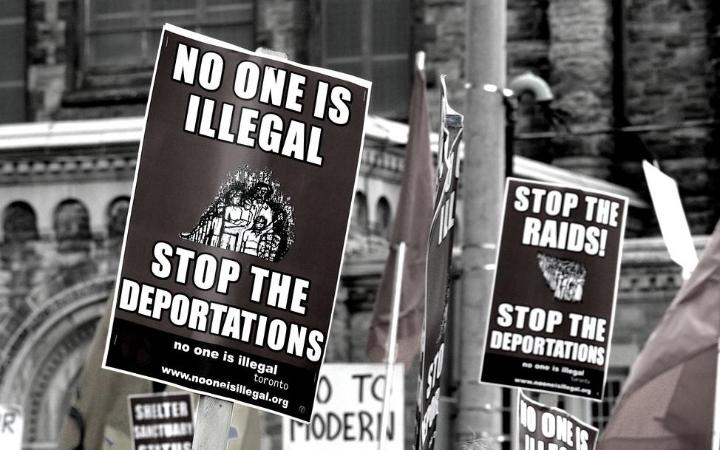Immigration Ethics
The Markkula Center for Applied Ethics explores ethical issues in immigration.
by Jonathan Kwan, Inclusive Excellence Postdoctoral Fellow in Immigration Ethics with the Markkula Center for Applied Ethics.
Immigration ethics refers broadly to the normative issues that arise from the movement of individuals across borders. One of the central questions in immigration ethics concerns whether states should restrict immigration or open their borders and what should be the values on the basis of which this determination is made. Although much of the public discourse on immigration is framed in binary terms (one is either for or against immigration), immigration ethics encompasses many issues beyond, though also including, the question of whether states should limit immigrant admissions. For instance, once immigrants have entered a state, what rights and privileges should they have? Should unauthorized immigrations have access to a path to citizenship?


The labels used to refer to different classes of individuals are not merely neutral descriptors but often implicitly create associations or value judgments.
Amy Reed-Sandoval on Migration, Gender, and Pregnancy
In the second episode in this video series our guest is Amy Reed, Assistant Professor in the Department of Philosophy and participating faculty in the Latinx and Latin American Studies Program at the University of Nevada, Las Vegas. She is the author of Socially Undocumented: Identity and Immigration Justice, which was published last year by Oxford University Press, and co-editor of Latin American Immigration Ethics and Ética, Política, y Migración.

Religions can cultivate a powerful counterforce to the anti-immigrant sentiments and mass deportation threats of the Trump Administration by upholding the belief in the sanctity of all life and building accepting communities.

Prioritizing dignity over detachment in ethical journalism practice.

The United States is one of 33 countries, including Canada, that recognize citizenship based on place of birth.

A collection of articles addressing key ethical immigration dilemmas.
Race, Ethics + Power: Emerging Scholars
Jonathan Kwan positions that transitional legitimacy is needed for theorizing how to realize legitimate political institutions from within ill-ordered societies marked by structural racism and oppression.

Articles on the ethical issues in immigration such as citizenship, migration, borders, ICE, and other related topics.

Case studies pertaining to immigration ethics issues.
